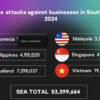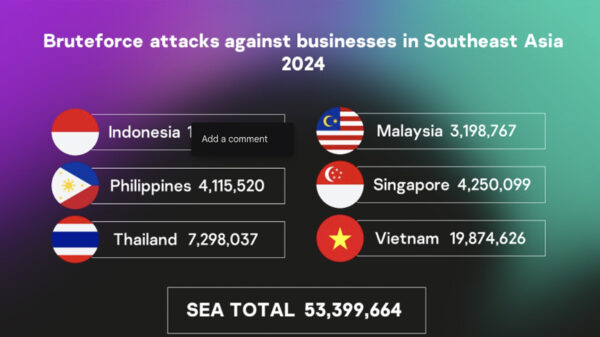Cybercriminals have been employing more sophisticated techniques in stealing their victims’ valuable information. While they may use different platforms or strategies to run their modus, PLDT and its wireless unit Smart Communications, Inc. (Smart) have identified ‘social engineering’ as the go-to game plan of malicious actors in the internet.
“Cybercriminals, when interacting with potential victims, use a variety of psychological manipulation to trick the public into sharing sensitive data like passwords or personal information that hackers can use to log into the victim’s various accounts including digital wallets,” explained Angel Redoble, First Vice President and Chief Information Security Officer of the PLDT Group.
PLDT and Smart’s Cyber Security Operations Group (CSOG) likens ‘social engineering’ to the ‘budol-budol’ modus of the 1990s where criminals would often concoct lies or pretend to be a personal acquaintance to coax the victim into handing over his money or valuables.
Fast forward to the new millennium and fraudsters have moved to different platforms to run their criminal activities. It started with ‘phishing’, a type of social engineering where criminals send fraudulent emails with links to malicious sites. Often masked as promos or notices from legitimate companies, victims are tricked into clicking the link which directs them to a website that asks for their personal data.
‘Phishing’ activities have since found their way into other channels where fraudsters use voice calls or ‘vishing’, text messages or ‘smishing’, and QR codes or ‘quishing’ to deceive their victims.
Quoting data from Cybersecurity Ventures, the PLDT Group’s CSOG said that cybercrime will cost the world more than USD10 trillion annually in 2025 making the illicit industry more profitable than cross-border trade of illegal drugs. Its impact is so great that if cybercrime were a country, data from Cybersecurity Ventures estimate that it will be the world’s third largest economy after the United States and China.
“It is best to adopt a culture of cybersecurity. We must be mindful of who we share our personal information with. When in doubt, end the call and do not open links from unverified sources,” advised Redoble.
The efforts of PLDT and Smart to detect and block malicious messages, including SIMs and websites tied to fraudulent activities, are vital to the PLDT Group’s much broader program to elevate the quality of customer experience by protecting them from threats and attacks.
















































































































